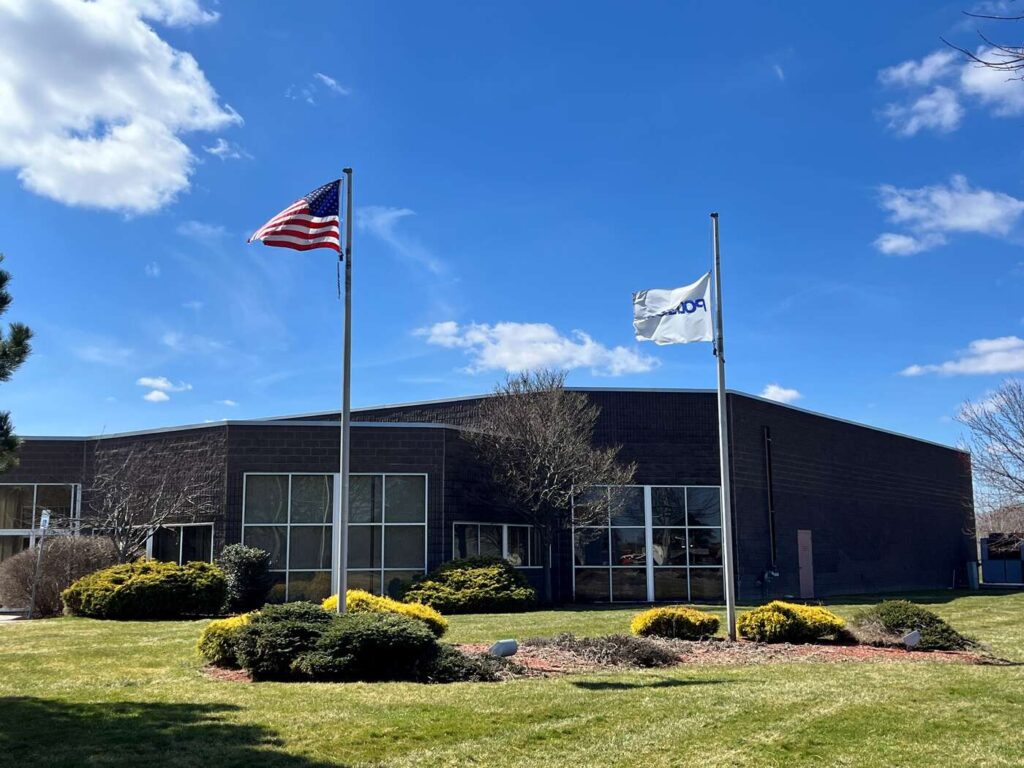Like most service providers in the American manufacturing industry, injection molders face potential cost increases due to new tariffs in 2025.
One one hand, raised tariffs are likely to raise the cost of imported products from overseas injection molders. That could potentially be a boon for domestic manufacturers, as their pricing becomes more competitive within the global market.
On the other hand, tariffs are likely to raise the costs of imported raw materials, as well as the costs of imported molds, machine parts, and tooling. That leaves many American injection molders seeking new sources to potentially avoid the worst of the increased tariffs.
Enter Polyshot.

Established in 1989, our company has long stood as one of the leading domestic manufacturers of precision injection molding equipment, specializing in hot runner systems and related components. We’ve always provided the many advantages of partnering with an American manufacturer: superior U.S.A.-made tooling with no language barriers, no international shipping delays, and no complex tariffs to navigate.
Now in 2025, with tariffs potentially increasing on imported equipment from Asia and Europe, as well as nearshore from Canada and Mexico, Polyshot’s innovative tooling solutions are more cost-effective than ever. Simultaneously, we can help ensure some much-needed stability and reliability for your supply chain.
The Biggest Price Increases Expected for American Injection Molders:
Tariffs on Steel and Aluminum Raw Materials
As of March 2025, the U.S. government has imposed a 25% tariff on imported steel and aluminum, eliminating previous exemptions for countries like Canada, Mexico, and those in the European Union. This policy aims to bolster domestic metal production but has resulted in increased costs for manufacturers reliant on these materials.
For injection mold makers, who depend heavily on high-quality steel and aluminum for tooling, these tariffs have led to higher production costs and potential delays in mold manufacturing. The American Mold Builders Association (AMBA) has shown support of these tariffs, viewing them as a means to level the playing field against underpriced foreign imports. Nevertheless, many manufacturers express concern about the financial strain and supply chain disruptions caused by these increased material costs.
Impact on Resin Prices
Obviously the tariffs also influence the pricing of raw materials including plastic resins. Unplanned production disruptions, rising feedstock costs, and the uncertainty surrounding trade policies contributes to further increased prices on commodity resins.
Manufacturers are bracing for increased expenses for these essential materials that they need to make their products, further straining profit margins and/or raising costs to their end customers. Beyond the higher costs, the uncertainty makes it challenging for manufacturers to accurately forecast future costs for volume manufacturing, leaving many projects in limbo.
Tariffs on Imported Injection Molds and Tooling
In addition to metal tariffs, a 25% tariff has been imposed on imported plastic injection molds, particularly those from China. This measure aims to encourage domestic mold production but has led to increased expenses for companies that previously sourced molds internationally.
The higher costs associated with importing molds are prompting many U.S. manufacturers to reconsider domestic sourcing strategies for their molds, tooling, and other machine components. Polyshot stands ready to meet those challenges, developing and delivering precision U.S.-made injection molding equipment on time according to each customer’s exact specifications.
Quality American Manufacturing for Injection Molders Since 1989
Polyshot Corporation specializes in the development of advanced hot runner systems to injection molding companies worldwide. Backed by more than 35 years of innovation and experience, our company continues to help our customers remain at the cutting edge of industry.

